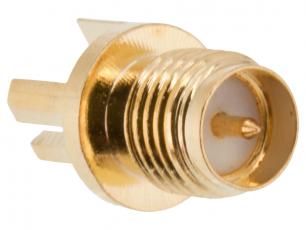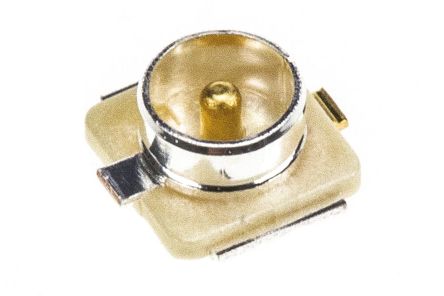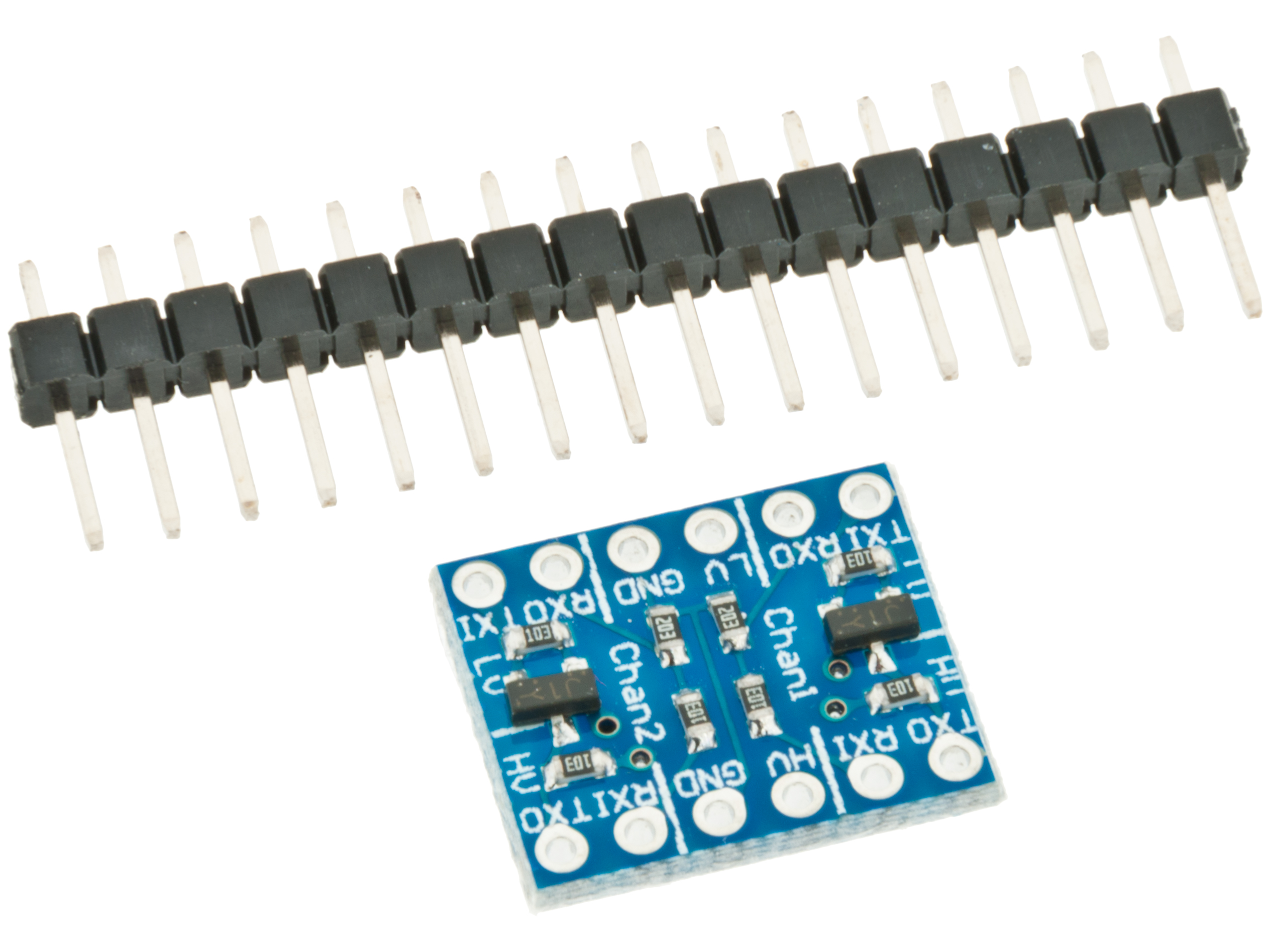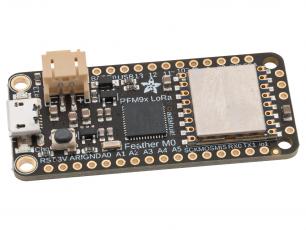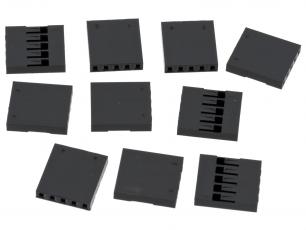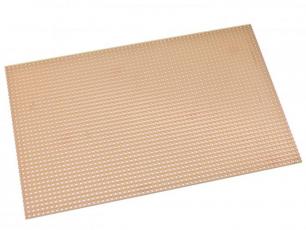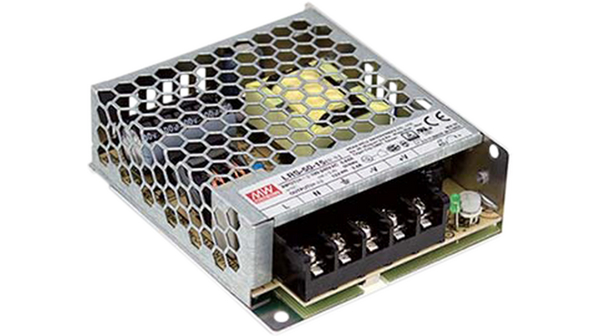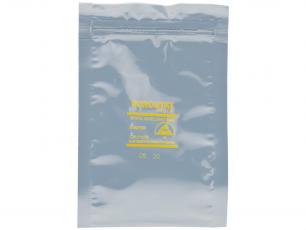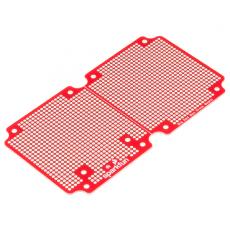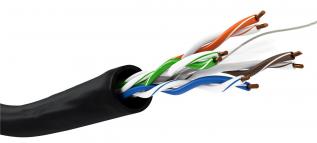Product description
Add short-hop wireless to your Feather with these Radio Featherwings. These add-ons for any Feather board will let you integrate packetized radio (with the RFM69 radio) or LoRa radio (with the RFM9x's). These radios are good options for kilometer-range radio, and paired with one of our WiFi, cellular or Bluetooth Feathers, will let you bridge from 433/900 MHz to the Internet or y?our mobile ?device.
These radio modules come in four variants (two modulation types and two frequencies) The RFM69's are easiest to work with, and are well known and understood. The LoRa radios are exciting, longer-range and more powerful but also more expensive.
RFM69 @ 433 MHz - basic packetized FSK/GFSK/MSK/GMSK/OOK radio at 433 MHz for use in Europe ITU 1 license-free ISM, or for amateur use with restrictions (check your local amateur regulations!)
RFM69 @ 900 MHz - basic packetized FSK/GFSK/MSK/GMSK/OOK radio at 868 or 915 MHz for use in Americas ITU 2 license-free ISM, or for amateur use with restrictions (check your amateur regulations!)
RFM98 @ 433 MHz - LoRa capable radio at 433 MHz for use in Europe ITU 1 license-free ISM, or for amateur use with restrictions (check your local amateur regulations!)
RFM95 @ 900 MHz - LoRa capable radio at 868 or 915 MHz for use in Americas ITU 2 license-free ISM, or for amateur use with restrictions (check your local amateur regulations!) This is the LoRa 9x @ 433 MHz radio version - the exact radio frequency is determined when you load the software since it can be tuned around dynamically. These are +20dBm LoRa packet radios that have a special radio modulation that is not compatible with the RFM69s but can go much much farther. They can easily go 2 Km line of sight using simple wire antennas, or up to 20Km with directional antennas and settings tweakings
SX127x LoRa® based module with SPI interface
Packet radio with ready-to-go Arduino libraries
Uses the license-free ISM bands
+5 to +20 dBm up to 100 mW Power Output Capability (power output selectable in software)
~300uA during full sleep, ~120mA peak during +20dBm transmit, ~40mA during active radio listening.
Our initial tests with default library settings: over 1.2mi/2Km line-of-sight with wire quarter-wave antennas. (With setting tweaking and directional antennas, 20Km is possible).
Currently tested to work with the Feather ESP8266, Teensy 3 Feather, Feather 32u4 and Feather M0 series, some wiring is required to configure the FeatherWing for the chipset you plan to use.
All radios are sold individually and can only talk to radios of the same part number. E.g. RFM69 900 MHz can only talk to RFM69 900 MHz, LoRa 433 MHz can only talk to LoRa 433, etc.
Each radio 'Wing comes with some header. Some soldering is required to attach the header. You will need to cut and solder on a small piece of wire (any solid or stranded core is fine) in order to create your antenna. Optionally you can pick up a uFL or SMA edge-mount connector and attach an external duck.
These radio modules come in four variants (two modulation types and two frequencies) The RFM69's are easiest to work with, and are well known and understood. The LoRa radios are exciting, longer-range and more powerful but also more expensive.
RFM69 @ 433 MHz - basic packetized FSK/GFSK/MSK/GMSK/OOK radio at 433 MHz for use in Europe ITU 1 license-free ISM, or for amateur use with restrictions (check your local amateur regulations!)
RFM69 @ 900 MHz - basic packetized FSK/GFSK/MSK/GMSK/OOK radio at 868 or 915 MHz for use in Americas ITU 2 license-free ISM, or for amateur use with restrictions (check your amateur regulations!)
RFM98 @ 433 MHz - LoRa capable radio at 433 MHz for use in Europe ITU 1 license-free ISM, or for amateur use with restrictions (check your local amateur regulations!)
RFM95 @ 900 MHz - LoRa capable radio at 868 or 915 MHz for use in Americas ITU 2 license-free ISM, or for amateur use with restrictions (check your local amateur regulations!) This is the LoRa 9x @ 433 MHz radio version - the exact radio frequency is determined when you load the software since it can be tuned around dynamically. These are +20dBm LoRa packet radios that have a special radio modulation that is not compatible with the RFM69s but can go much much farther. They can easily go 2 Km line of sight using simple wire antennas, or up to 20Km with directional antennas and settings tweakings
SX127x LoRa® based module with SPI interface
Packet radio with ready-to-go Arduino libraries
Uses the license-free ISM bands
+5 to +20 dBm up to 100 mW Power Output Capability (power output selectable in software)
~300uA during full sleep, ~120mA peak during +20dBm transmit, ~40mA during active radio listening.
Our initial tests with default library settings: over 1.2mi/2Km line-of-sight with wire quarter-wave antennas. (With setting tweaking and directional antennas, 20Km is possible).
Currently tested to work with the Feather ESP8266, Teensy 3 Feather, Feather 32u4 and Feather M0 series, some wiring is required to configure the FeatherWing for the chipset you plan to use.
All radios are sold individually and can only talk to radios of the same part number. E.g. RFM69 900 MHz can only talk to RFM69 900 MHz, LoRa 433 MHz can only talk to LoRa 433, etc.
Each radio 'Wing comes with some header. Some soldering is required to attach the header. You will need to cut and solder on a small piece of wire (any solid or stranded core is fine) in order to create your antenna. Optionally you can pick up a uFL or SMA edge-mount connector and attach an external duck.




